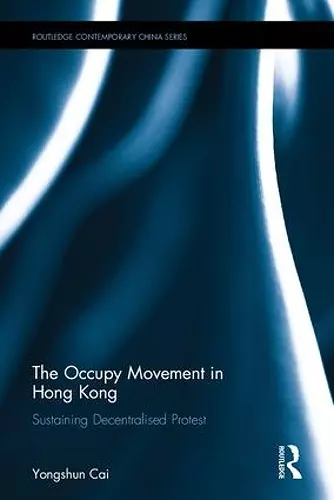The Occupy Movement in Hong Kong
Sustaining Decentralized Protest
Format:Hardback
Publisher:Taylor & Francis Ltd
Published:8th Sep '16
Currently unavailable, and unfortunately no date known when it will be back
This hardback is available in another edition too:
- Paperback£45.99(9781138604650)

The Occupy movement in Hong Kong was sustained for about 80 days because of government tolerance, the presence of determined participants, and a weak leadership. The government tolerated the occupation because its initial use of force, in particular teargas, was counterproductive and provoked large-scale participation. Unlike other social movements, such as the 1989 Tiananmen movement, the Occupy movement reached its peak of participation at the very beginning, making it difficult to sustain the momentum. The presence of determined participants who chose to stay until the government responded was crucial to the sustaining of the movement. These self-selected participants were caught in a dilemma between fruitless occupation and reluctance to retreat without a success. The movement lasted also because the weak leadership was unable to force the government to concede or devise approaches for making a "graceful exit." Consequently, site clearance became the common choice of both the government and the protestors.
This book develops a new framework to explain the sustaining of decentralized protest in the absence of strong movement organizations and leadership. Sustained protests are worth research because they not only reveal the broad social context in which the protests arise and persist but also point out the dynamics of the escalation or the decline of the protests. In addition, sustained protest may not only lead to more dramatic action, but they also result in the diffusion of protests or lead to significant policy changes.
ISBN: 9781138692299
Dimensions: unknown
Weight: 385g
174 pages